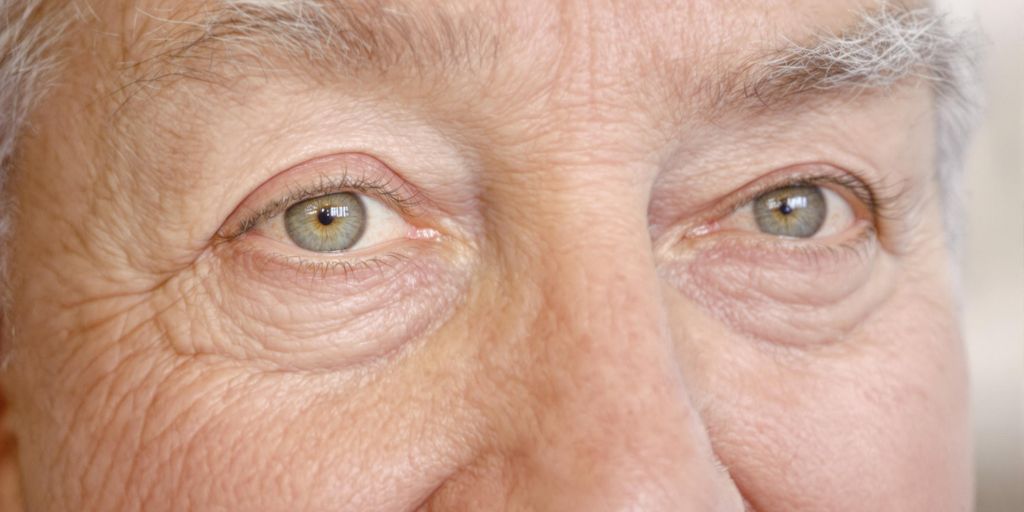If you’re in your 60s or beyond, you might be wondering if LASIK is still an option for you. Many people want to ditch their glasses or contacts, but they hesitate because of their age. The good news is that age alone doesn’t automatically disqualify you from LASIK. There are a few factors to consider, like your overall eye health and any age-related vision changes. Let’s break down what you need to know about LASIK and aging.
Key Takeaways
- There’s no strict upper age limit for LASIK; as long as your eyes are healthy, you may still qualify.
- Common vision changes like presbyopia and cataracts can affect LASIK candidacy, so it’s important to discuss these with your doctor.
- Stable vision for at least a year is crucial before considering LASIK surgery.
- Older adults may face a higher chance of needing follow-up treatments after LASIK, so manage your expectations.
- Consulting with a LASIK specialist can help you understand your options and determine if LASIK is right for you.
Understanding LASIK Surgery
What Is LASIK?
So, you’re thinking about LASIK? Let’s break down what it actually is. LASIK stands for Laser-Assisted In Situ Keratomileusis, which is a mouthful, I know! Basically, it’s a type of refractive surgery that uses a laser to correct vision problems. Think of it as a way to reshape your cornea so light focuses correctly on your retina. It’s super common, and when people talk about laser eye surgery, they’re often referring to LASIK.
How Does LASIK Work?
Okay, so how does this reshaping thing actually happen? Well, your eye surgeon uses a special laser to make a thin flap in your cornea. Then, they fold back the flap and use another laser to precisely remove tiny bits of tissue from the cornea. This reshapes the cornea, correcting any imperfections that are causing blurry vision. Finally, the flap is put back in place, and it heals on its own. Ideally, this helps light focus directly on your retina, giving you clear vision. If you’re nearsighted, farsighted, or have astigmatism, LASIK aims to fix where the light focuses in your eye.
Benefits of LASIK Surgery
Why do people get LASIK? There are a bunch of reasons!
- First off, many people achieve 20/20 vision or close to it, which means you might not need glasses or contacts anymore. Imagine the freedom!
- It’s also a pretty quick procedure, and the recovery time is usually short. Most people can go back to their normal activities within a day or two.
- Plus, LASIK can improve your quality of life. Think about being able to see clearly when you wake up, play sports without glasses, or just enjoy the world around you without any visual aids. It’s a big deal for a lot of people.
Age Considerations for LASIK
Is There an Upper Age Limit?
So, you’re wondering if you’re too old for LASIK? The good news is, there isn’t a strict upper age limit for LASIK. The FDA says you just need to be at least 18. What really matters is the health of your eyes and whether your vision has been stable for a while. People often think about LASIK in their 20s to 40s, once their vision has settled down. But that doesn’t mean it’s off the table as you get older. It’s more about individual eye health than just your age.
Common Age-Related Vision Changes
As you get older, your eyes change, just like the rest of you. Here are a few things that might happen:
- Presbyopia: This is super common, usually starting in your 40s. It makes it harder to focus on things up close, like reading. You might find yourself needing reading glasses more and more.
- Cataracts: These can develop gradually, clouding the lens of your eye. At first, you might not notice much, but over time, it can make your vision blurry or hazy.
- Dry Eye: Your eyes might not produce as many tears as they used to, leading to discomfort and blurry vision. This can be more common as you age.
These changes don’t automatically rule out LASIK, but they’re important to consider. Sometimes, other procedures might be a better fit.
Impact of Aging on Eye Health
Aging can bring some eye health challenges that need to be considered before LASIK. For example, conditions like glaucoma or macular degeneration become more common as you get older. These conditions can affect the overall health of your eyes and might influence whether LASIK is a good option for you. It’s not just about seeing clearly; it’s about making sure your eyes are healthy enough to handle the procedure and recover well. A thorough eye exam is key to figuring out if LASIK is right for you at this stage in your life.
Health Factors Affecting LASIK Eligibility
Importance of Stable Vision
Having stable vision is super important before you even think about LASIK. Your prescription should be consistent for at least a year before the surgery. Why? Because LASIK aims to correct your current vision. If your vision is still changing, the surgery might not give you the long-term results you’re hoping for. Think of it like this: you wouldn’t build a house on shifting sand, right? Same goes for your eyes! Fluctuations can be caused by a number of things, so it’s important to get to the root cause before moving forward. If you have any eye injuries, make sure to tell your doctor.
Common Eye Conditions in Older Adults
As we get older, certain eye conditions become more common, and these can affect whether LASIK is a good option. For example:
- Cataracts: These cause clouding of the lens and can significantly impact vision. If cataracts are the main issue, cataract surgery might be a better choice than LASIK. In fact, beyond age 55, cataracts may start to develop. When cataract is determined to be the main reason for changes in your vision, cataract extraction surgery becomes the preferred method of treatment to improve your vision instead of LASIK eye surgery.
- Glaucoma: This condition damages the optic nerve and can lead to vision loss. LASIK can make it harder to monitor glaucoma, so it might not be recommended if you have moderate or severe glaucoma.
- Dry Eye: This is a common issue, especially as we age. LASIK can sometimes worsen dry eye, so it’s important to address this beforehand. Your doctor might have you wear contact lenses that simulate the surgery to see if you can tolerate it.
Overall Health and LASIK
Your overall health plays a big role in LASIK eligibility. Certain medical conditions can increase the risks associated with the surgery or affect the healing process. It’s important to let your surgeon know about any medical conditions you may have, including diabetes or autoimmune disorders. If you have moderate or severe glaucoma, you shouldn’t have LASIK, because it will make your condition harder to monitor. Also, certain medications can also impact your candidacy, so be sure to provide a complete list of medications you’re taking. Good overall health doesn’t have to mean perfect health. Not every potential health issue for seniors impacts the eyes, and speaking with a LASIK specialist is the best way to learn how laser eye surgery fits in with various health needs.
Risks and Complications of LASIK
LASIK, like any surgery, comes with potential risks. It’s good to be aware of these, especially as you get older, so you can make an informed decision. While serious problems aren’t common, it’s important to understand what could happen.
Potential Risks for Older Patients
Older patients might face a slightly higher chance of certain complications. One thing to keep in mind is that your eyes change as you age, and these changes can affect the outcome of LASIK. Here are a few things to consider:
- Dry eye: This is a pretty common side effect for anyone getting LASIK, but it can be more pronounced in older adults because tear production tends to decrease with age.
- Night vision problems: Some people experience halos or glare around lights at night after LASIK. This can be more noticeable in older patients.
- Regression: In some cases, the vision correction achieved by LASIK can decrease over time, requiring further correction. This is more likely if your vision wasn’t stable before the surgery.
Managing Expectations After Surgery
It’s super important to have realistic expectations about what LASIK can do for you. LASIK can improve your vision, but it might not give you perfect vision, and you might still need glasses for certain activities, like reading or driving at night.
- Discuss your goals with your surgeon. What do you hope to achieve with LASIK?
- Understand the limitations. LASIK can’t correct presbyopia (age-related loss of near vision).
- Be prepared for potential side effects. Dry eye, halos, and glare are common, and they might not go away completely.
Long-Term Outcomes of LASIK
Most people are happy with their LASIK results, but it’s important to think about the long term. Your eyes will continue to change as you age, and you might need additional vision correction in the future.
- Cataracts: These are a common age-related condition that can cloud your vision. LASIK doesn’t prevent cataracts.
- Presbyopia: This age-related loss of near vision will still occur, even after LASIK.
- Regular eye exams: It’s important to continue getting regular eye exams to monitor your eye health and vision.
Alternatives to LASIK for Older Adults
As you get older, LASIK might not always be the best or only option for vision correction. Luckily, there are some other things you can do to improve your sight. Let’s take a look at some alternatives.
Cataract Surgery
If cataracts are the main reason your vision is changing, then cataract extraction surgery is probably the way to go. Cataract surgery replaces your eye’s cloudy lens with a clear artificial one. It’s a really common procedure, and it can dramatically improve your vision if cataracts are the problem. It’s worth talking to your doctor about this if you’re experiencing blurry vision, glare, or difficulty seeing at night.
Monovision Options
Monovision is where one eye is corrected for distance vision, and the other is corrected for near vision. This can be achieved with LASIK, but it can also be done with contact lenses or even intraocular lenses (IOLs) during cataract surgery. Some people find it takes some getting used to, but it can be a good way to deal with presbyopia (age-related difficulty with near vision). It’s not for everyone, but it’s worth exploring if you’re struggling with reading or close-up work.
Other Vision Correction Procedures
Besides LASIK and cataract surgery, there are other options out there.
- RLE (Refractive Lens Exchange): This is similar to cataract surgery, but it’s done when you don’t have cataracts yet. Your natural lens is replaced with an artificial one to correct your vision. It can be a good option if you’re not a good candidate for LASIK but still want to reduce your dependence on glasses or contacts.
- ICL (Implantable Collamer Lens): An ICL is like a contact lens that’s surgically implanted in your eye. It can correct nearsightedness, farsightedness, and astigmatism. It’s often used for people who aren’t candidates for LASIK because they have thin corneas or other issues.
- Eyeglasses and Contact Lenses: Don’t forget the basics! Sometimes, the simplest solution is the best. Modern eyeglasses and contact lenses offer a wide range of options for correcting vision, including multifocal lenses for presbyopia. They might not be as exciting as surgery, but they’re safe, effective, and non-invasive.
Consulting with a LASIK Specialist
So, you’re thinking about LASIK? Good for you! It’s a big decision, especially as we get a little older. The best way to figure out if it’s right for you is to chat with a LASIK specialist. Here’s what you can expect:
What to Expect During a Consultation
Okay, so you’ve booked your consultation. What happens now? First off, they’ll go over your medical history with a fine-tooth comb. Be ready to answer questions about any eye issues you’ve had, like infections or injuries. They’ll also want to know about any other health problems, like diabetes or autoimmune stuff, because that can affect how well LASIK works for you. They’ll also do a bunch of tests to check your vision and measure your cornea.
- They’ll check your current prescription, and how stable it’s been.
- They’ll measure the thickness of your cornea.
- They’ll dilate your eyes to get a good look at your retina.
Questions to Ask Your Surgeon
Come prepared with questions! This is your chance to get all the info you need. Here are a few ideas:
- “What are the specific risks for someone my age?”
- “What kind of results can I realistically expect?”
- “How many LASIK procedures have you performed?”
- “What technology do you use, and why is it the best option for me?”
Don’t be shy about asking anything that’s on your mind. It’s better to be over-prepared than to have regrets later.
Evaluating Your Candidacy
After all the tests and questions, the surgeon will let you know if you’re a good candidate. They’re looking for a few key things:
- Stable vision: Your prescription should be pretty consistent for at least a year before surgery.
- Healthy eyes: No active infections, inflammation, or other eye diseases.
- Realistic expectations: LASIK can improve your vision, but it’s not a miracle cure. It’s important to understand the potential risks and benefits.
If they give you the thumbs down, don’t get too discouraged. There are other options out there, like cataract surgery or different types of lenses. The important thing is to find the best solution for your individual needs.
Personal Experiences with LASIK
Patient Testimonials
Hearing from others who’ve gone through LASIK, especially those in a similar age group, can be really helpful. It gives you a sense of what to expect, both good and bad. You can find these stories online, in forums, or even through your eye surgeon’s office. These testimonials often highlight the life-changing aspects of improved vision, but also the importance of managing expectations.
Success Stories
Success stories are definitely inspiring. They show the potential positive outcomes of LASIK, like being able to read without glasses or enjoying hobbies more fully. But remember, everyone’s experience is different. What worked great for one person might not be the same for you. It’s good to keep that in mind.
Challenges Faced by Older Patients
It’s not always smooth sailing. Some older patients might face challenges like:
- Dry Eyes: This is a common complaint after LASIK, and it can be more pronounced in older individuals.
- Night Vision Issues: Some people experience halos or glare around lights at night, which can affect driving.
- Regression: In some cases, the vision correction might not last as long as expected, requiring further correction.
It’s important to be aware of these potential issues and discuss them with your doctor. Managing expectations is key to a positive experience.
Final Thoughts on LASIK and Age
So, are you too old for LASIK? The short answer is no, not really. Age alone shouldn’t stop you from considering this surgery. What really matters is your eye health and whether your vision is stable. Sure, as we get older, we face some challenges like cataracts or dry eyes, but many folks over 60 have had successful LASIK. If you’re thinking about it, the best move is to chat with a LASIK specialist. They can help you figure out if it’s a good fit for you. Remember, it’s all about making the right choice for your eyes, no matter your age.
Frequently Asked Questions
What is LASIK surgery?
LASIK is a type of eye surgery that uses lasers to help improve your vision. It can reduce the need for glasses or contact lenses.
Can older adults get LASIK?
Yes, older adults can get LASIK as long as their eyes are healthy and their vision has been stable.
Are there any risks for older patients?
Older patients might face some risks like needing a follow-up treatment, but many have successful outcomes.
What should I consider before getting LASIK?
You should think about your overall eye health, any existing conditions like cataracts, and whether your vision has been stable.
What are some alternatives to LASIK for vision correction?
Alternatives to LASIK include cataract surgery, monovision options, and other types of vision correction procedures.
How can I find out if I’m a candidate for LASIK?
The best way to find out is to schedule a consultation with a LASIK specialist who can evaluate your eyes and health.




